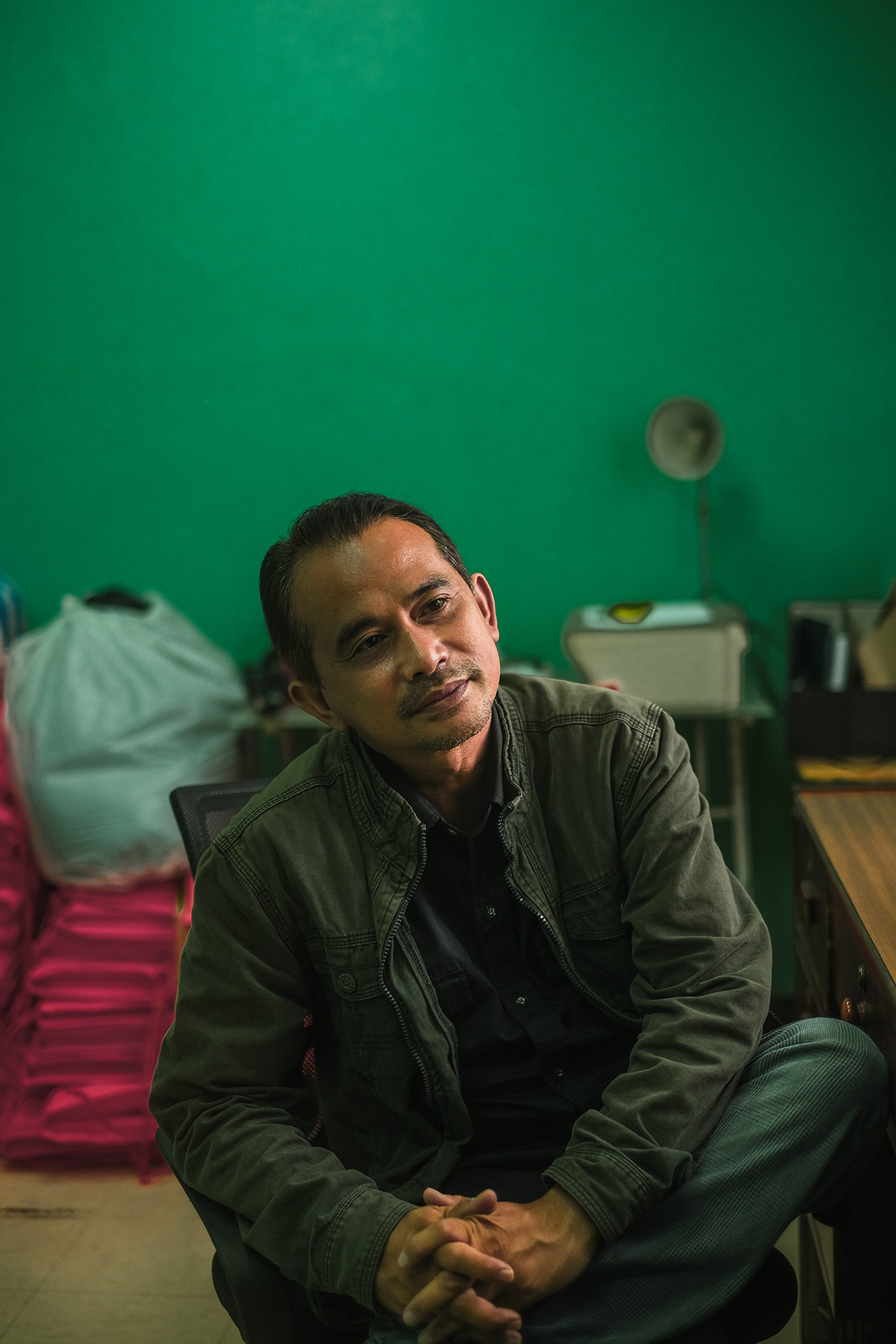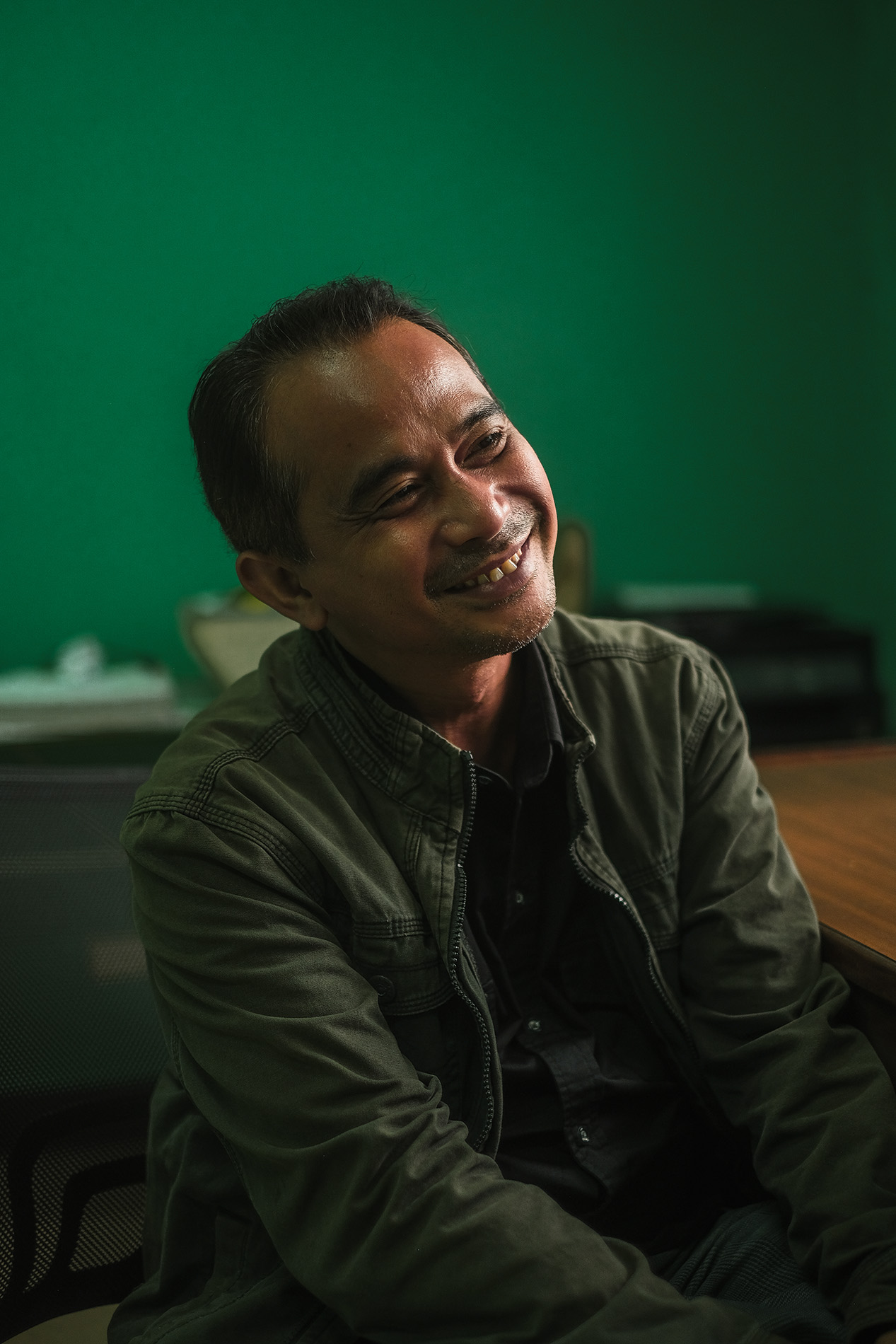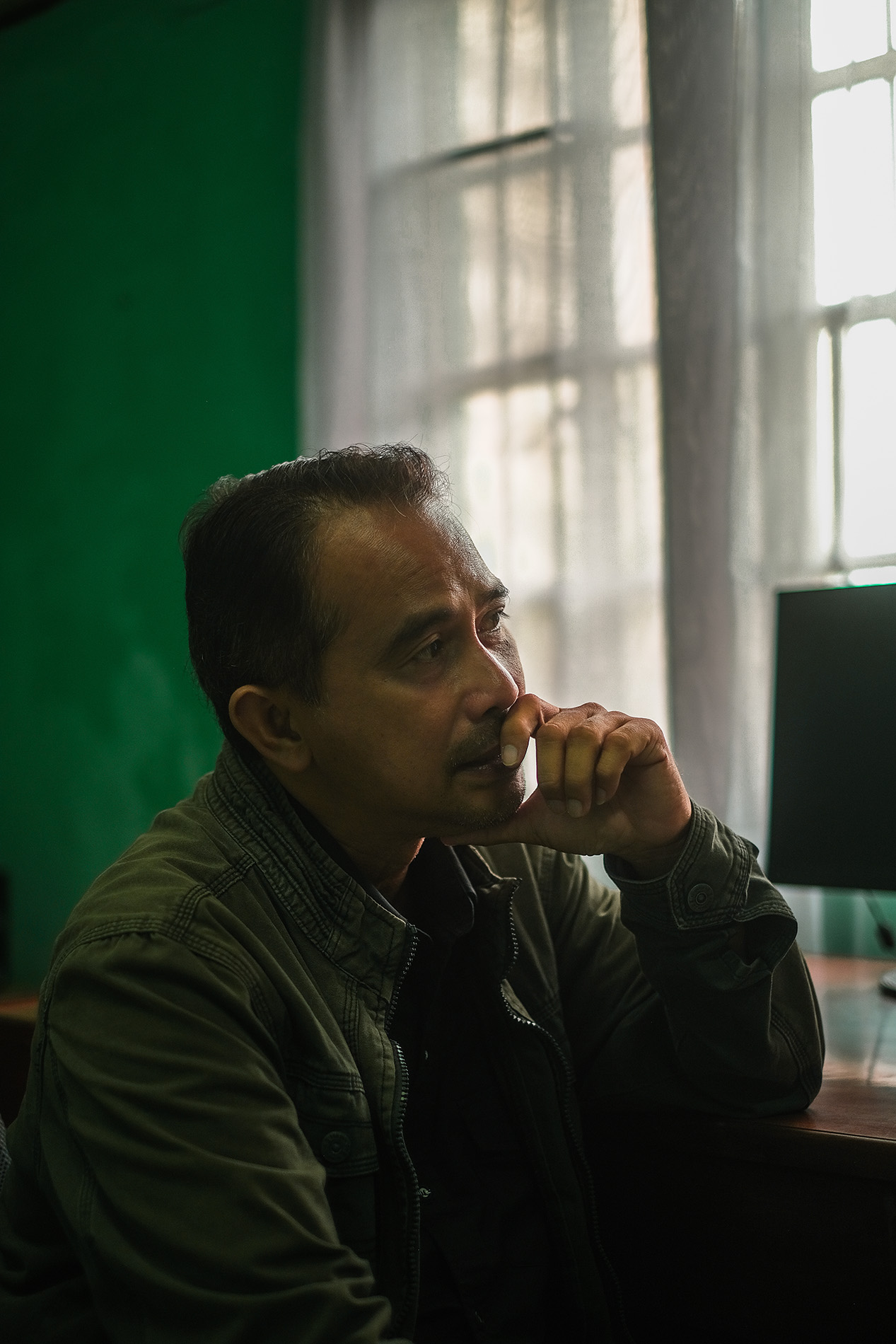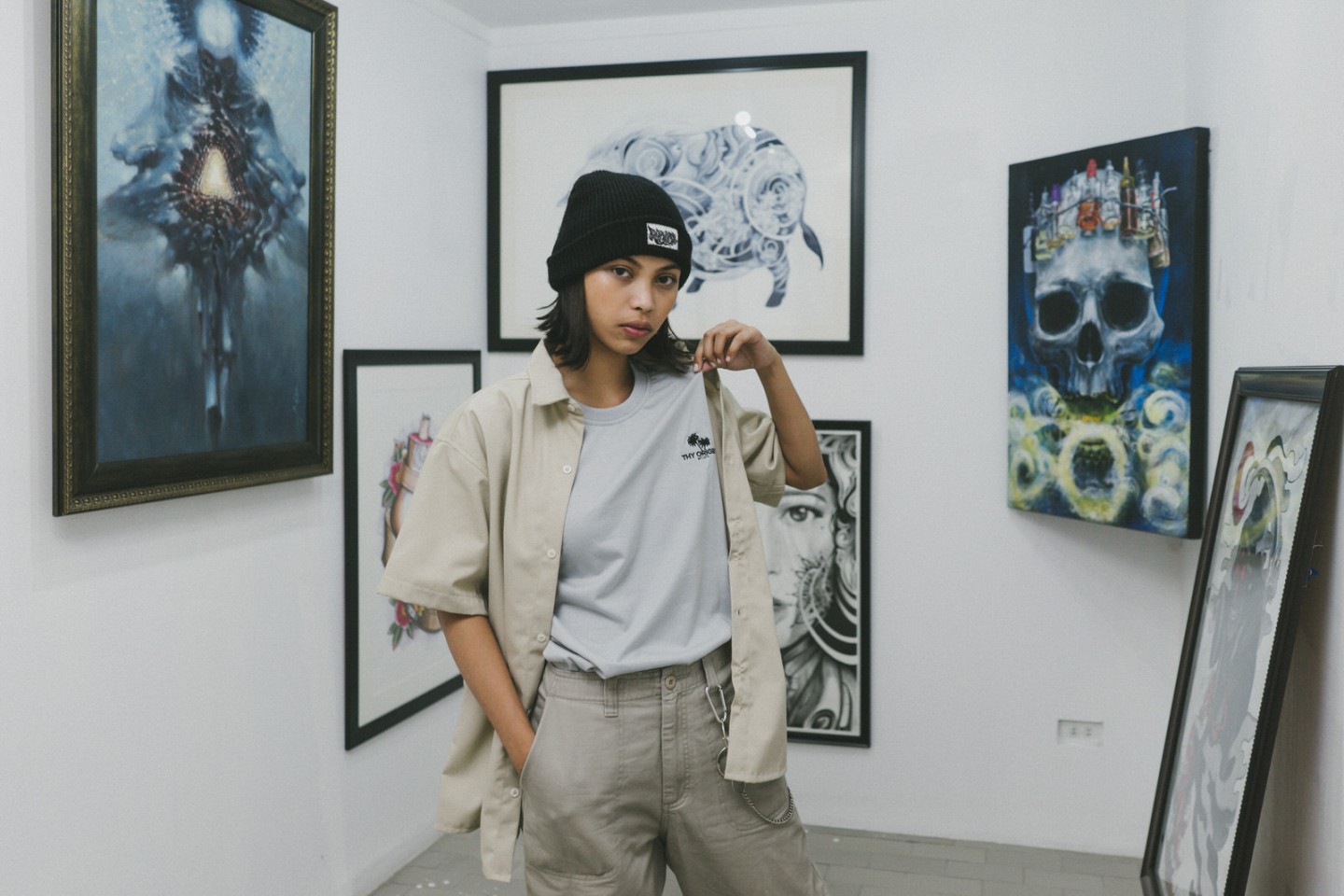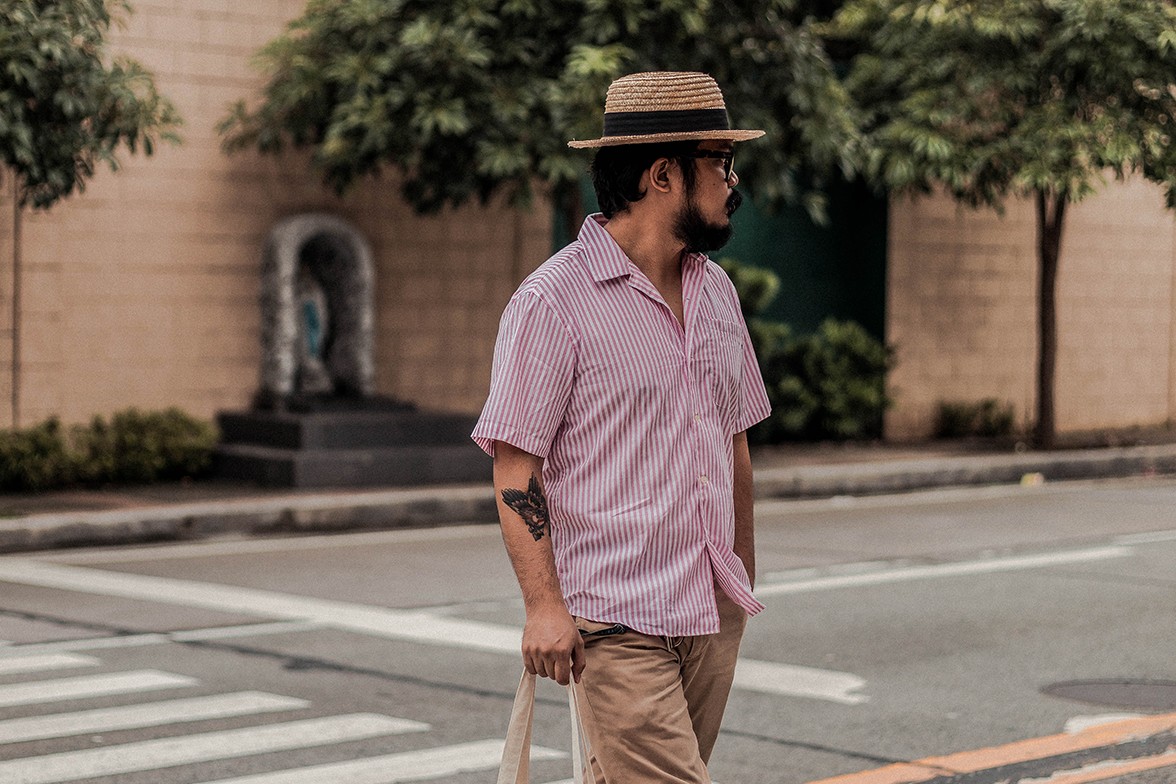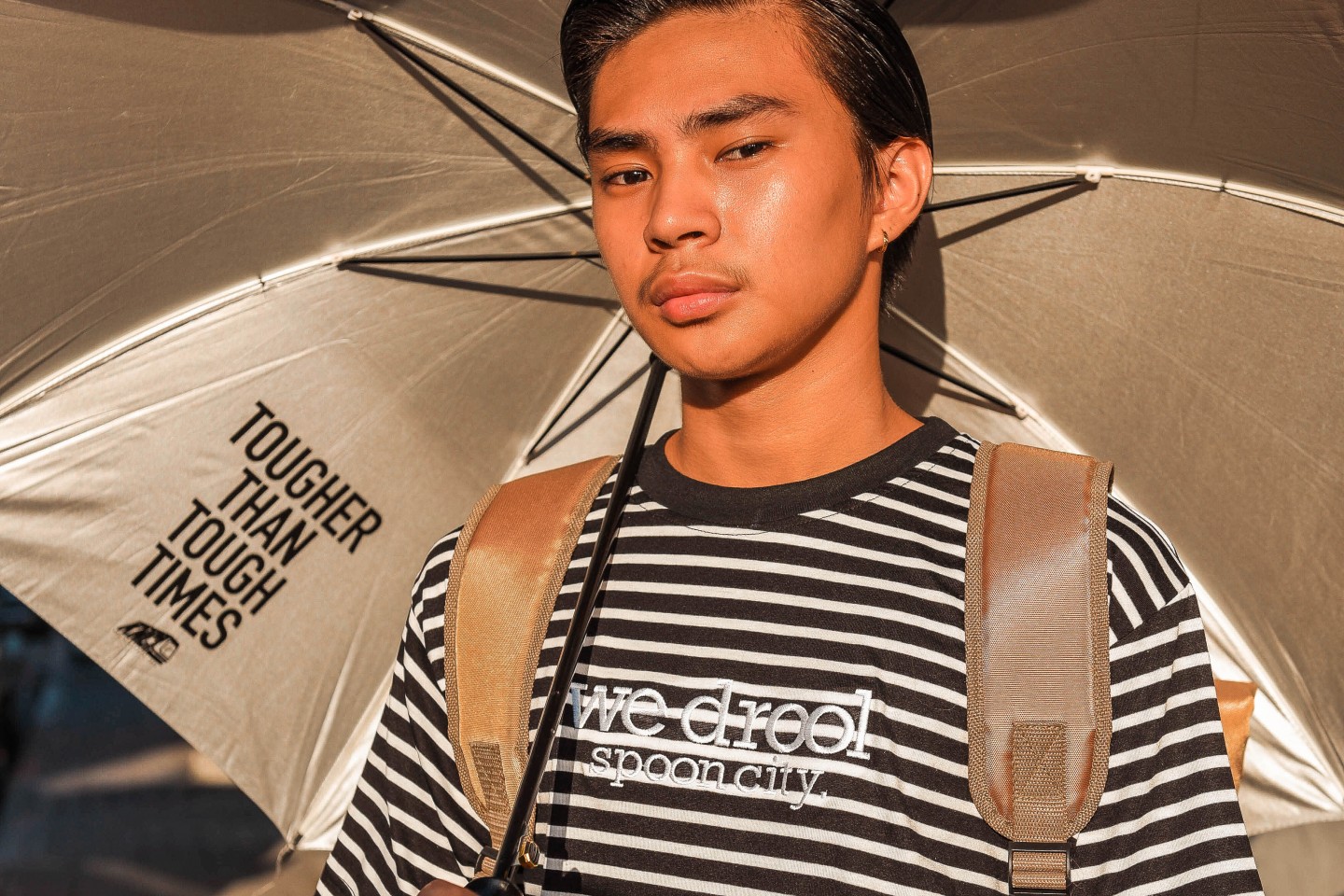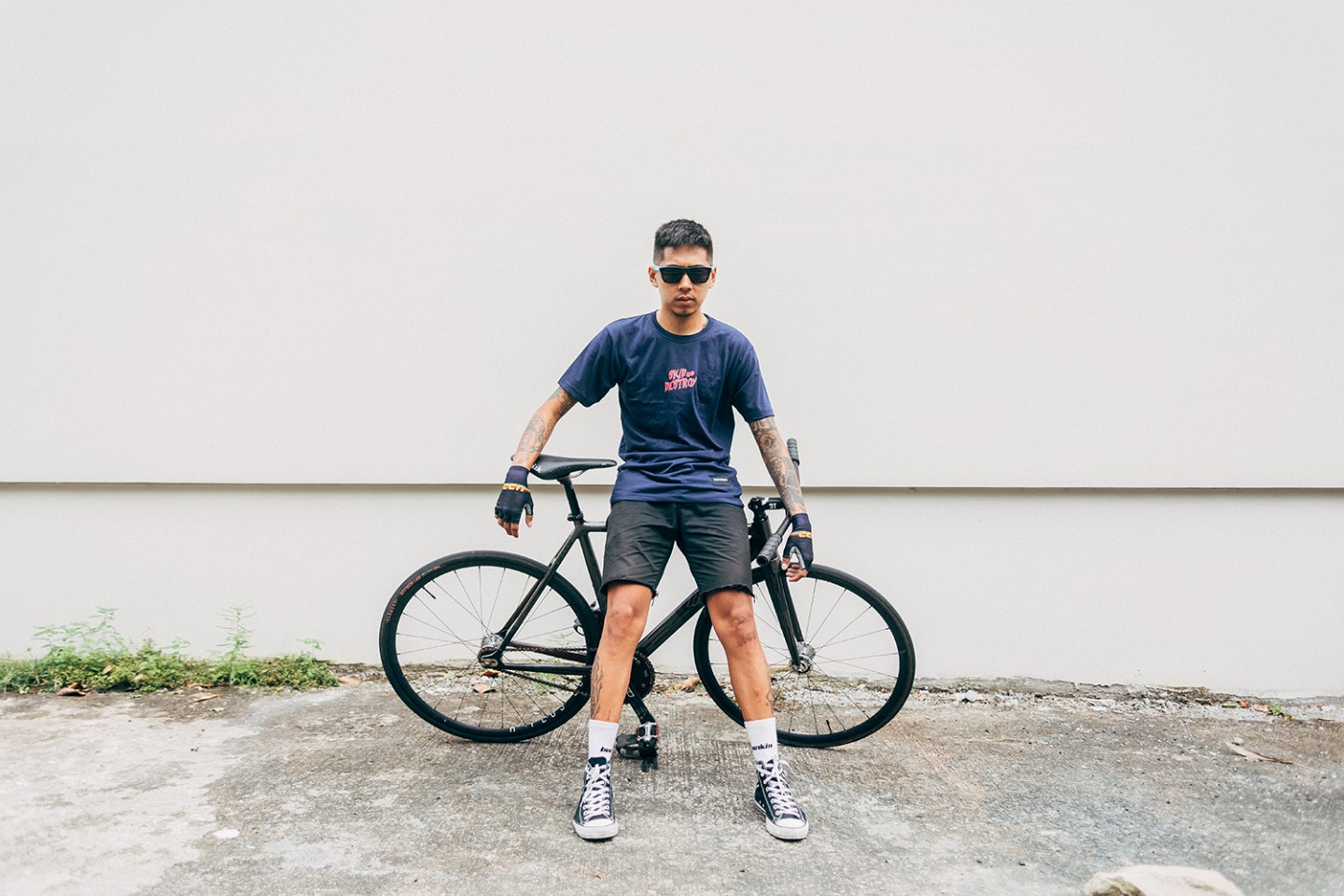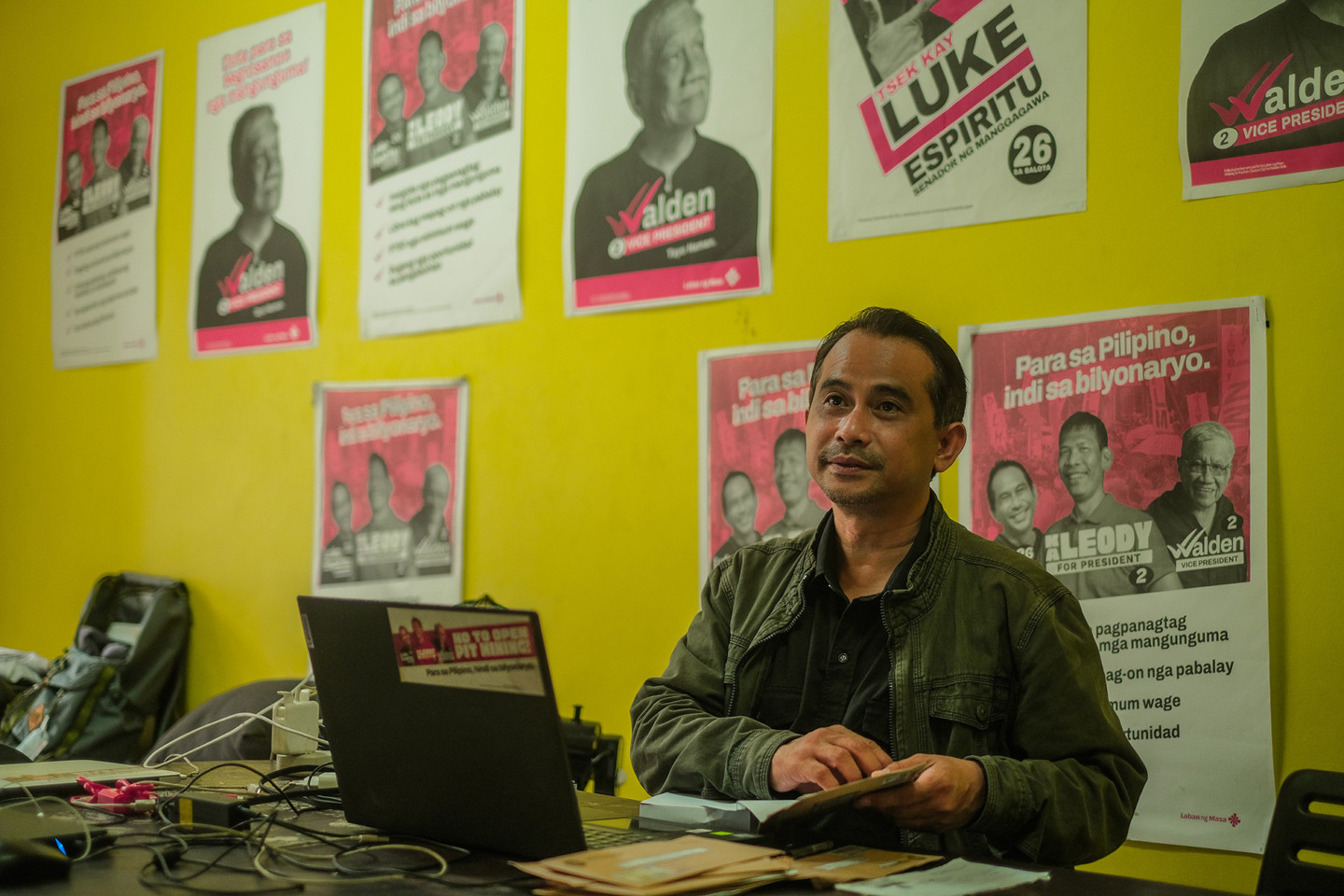
Like a walking Jay-Z lyric, senatorial aspirant Luke Espiritu is melodically commanding. The 47-year-old lawyer by profession speaks not only with an inflection born out of political rallies but also to the beat of a socialist movement.
“Thank you very much for waiting for me. I appreciate it,” he tells PURVEYR at the Laban ng Masa (LnM) headquarters before excusing himself to fix his hair. “Kahit mainit, nag ja-jacket pa rin ako. (Even if it’s hot, I still wear a jacket.) It’s become part of my brand,” he shares upon his return before posing confidently in front of our camera.
Espiritu is self-assured and sharp-witted, but his conviction carries no air of vanity. “Do you naturally smile in photos?” we ask. “If I’m happy, I do. But if I’m in an argumentative mood like I was in the debate with Gadon, then I don’t,” laughs off the labor leader.
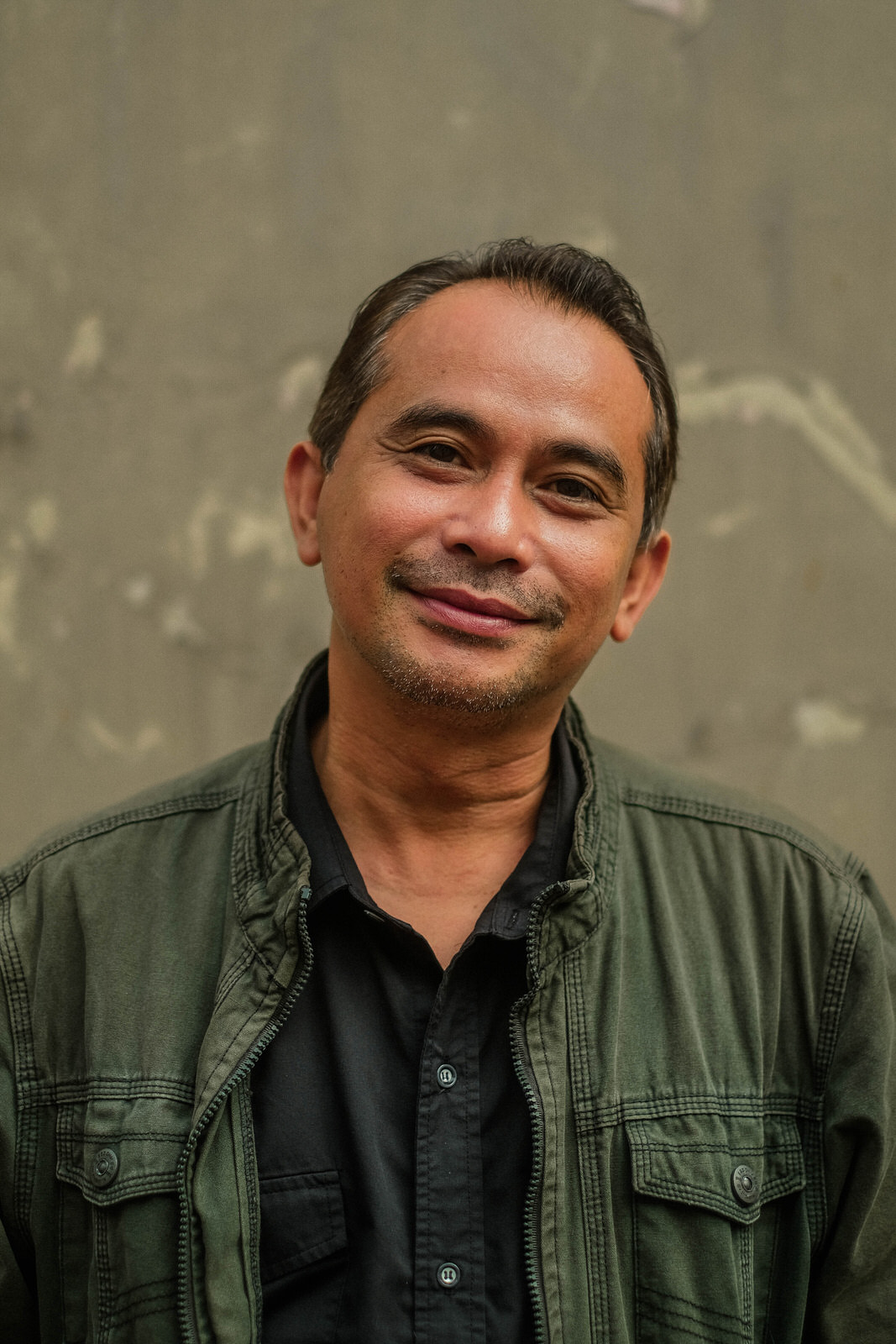
No stranger to online virality, it can be recalled that his heated exchange with suspended lawyer Larry Gadon at a televised debate earned him mainstream popularity when his famous line, “It’s my time, ‘wag kang bastos! (don’t be rude!)” made the rounds on social media.
Asked if his rapid rise on the internet has made him grow fond of TikTok, the platform that houses footage of his most memorable rebuttals, he shakes his head. “Not particularly. I enjoy TikTok when I create comedy skits with Walden. I think we have four skits now?” he muses.
“But I don’t hop on dance trends. There has to be a message. It has to be intentional. In my TikTok videos with Walden, many times, we mock the elite.” Walden Bello, of course, is his partylist’s Vice Presidential candidate where Ka Leody De Guzman is running for the highest position of the land. “I guess you can say I have a heart for telling stories in the sense na, sometimes I look for other ways to tell a message, gaya ng pag ti-TikTok. Kadalasan pabiro pero always with intention (Like with TikTok, mostly with humor, but always with a message),” he substantiates as he makes himself comfortable on the only black swivel chair in the room.
Caught up in his explanation, Luke backpedals with unpresuming caution, “Sorry I can’t help but be political in my interviews. Kasi, I feel that our role is to raise consciousness and not just to cater to the masses’ baser elements.” Apart from fleshing out TikTok ideas, Luke says it is public speaking that he considers to be his primary artistic gift. “You have to be creative in order to communicate. Art din siya eh. It’s about convincing people and inspiring them to move. So you have to find the ways and means to do that.”
It’s in his genes. Like a Redwood bearing cones, the jacket-wearing funnyman credits his dad for his gift of gab. “My father was a debater. Hearing his stories about his time in his college debate team—trained by no less than Aquilino Pimentel Jr. himself—inspired me so much.”
It also helps to understand that the Ateneo alumnus grew up in the Marcos era, which explains why the leaders he looked up to as an adolescent were Muslim minister and human rights activist Malcolm X and Filipino politician and opposition leader Ninoy Aquino.
“What makes Ninoy Aquino such a stellar communicator?” we inquire. “He could articulate what many others felt at a time when the regime just wanted to silence people. He could speak to them in such a way that encouraged them to fight for change. That, for me, is what makes an effective public speaker.”
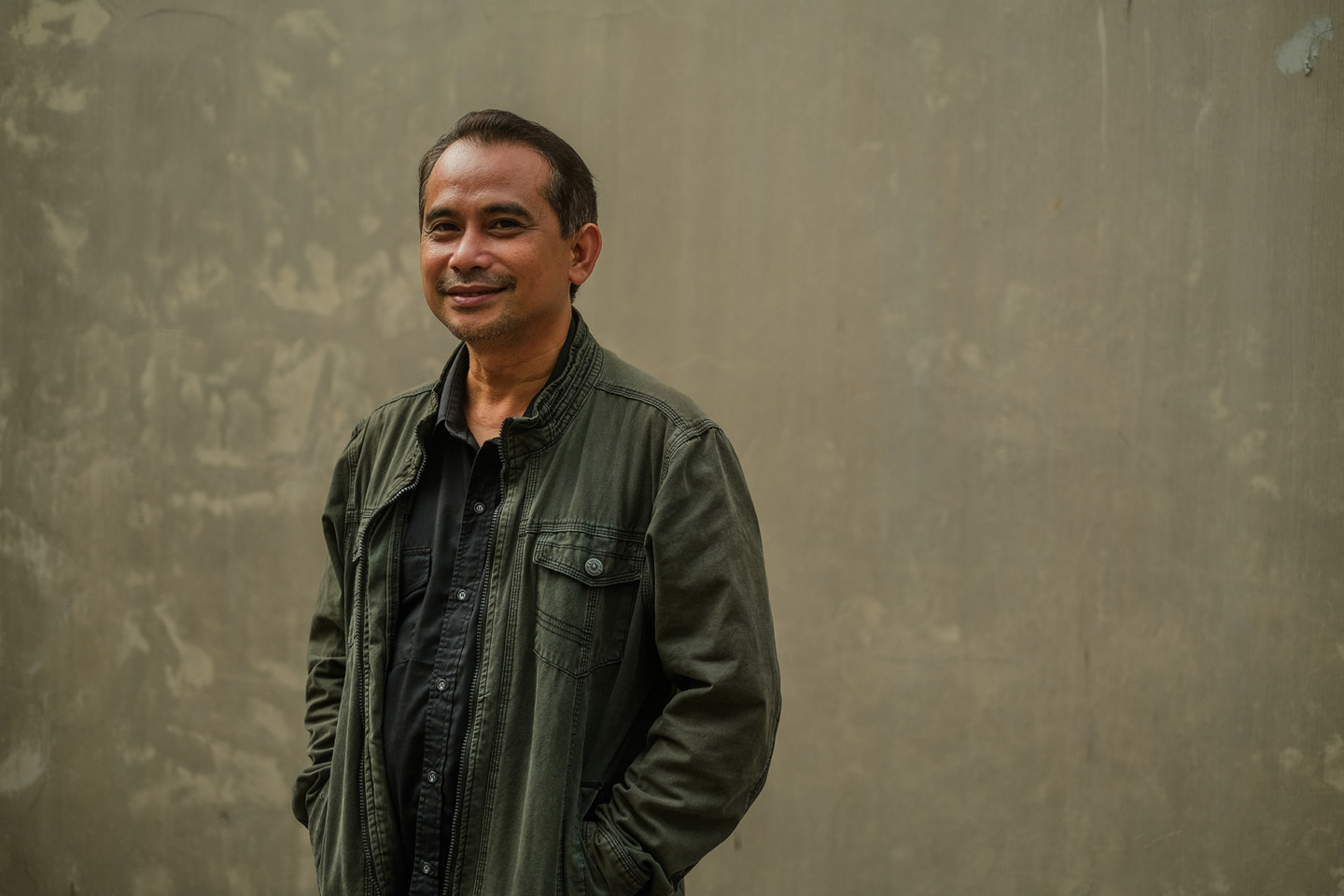
Photographer — Marvin Conanan
Family and Politics
At home, Luke says he watches movies with his family to unwind. “I enjoy movies that have a lot to say about society; those that portray revolutionary struggles.”
“I love Brave Heart, for example. I’m not a fan of the historical inaccuracy and the Hollywood penchant for taking artistic freedom at the expense of truth, but I like the movie,” he narrates earnestly.
Adding to his list of film favorites is 1988’s Cinema Paradiso. “If you watch the movie and don’t look deep enough, you’ll think it’s just another love story. But, actually, it’s about how a society—that has some feudal aspects to it—can change, and how a person can liberate himself from certain limitations. So there’s that kind of commentary in the story that I really like.”
“I also love romantic comedies!” he exclaims after briefly staring at the wall. “Adventureland and Fools Rush In are a few I can think of right now.” “Do you have local favorites?” we clarify. “Maynila: sa mga Kuko ng Liwanag (Manila in the Claws of Light),” he replies intuitively. After a thorough rundown of his biases for cinema, Luke lets us in on one of his visions.
“I always tell my children that I’d like to create a movie, and I want one of my daughters who’s into film, to make it for me. One of my dreams is to produce a movie about my hometown in Bacolod City—and it can be about children going on with their lives, simply playing and completely innocent. So my idea is that it’s set in Negros, and the story is centered on killings, human rights violations, rallies, Sakadas, and strikes. On one hand, it’s a movie about kids exploring the world, but it’s also equally about social issues.”
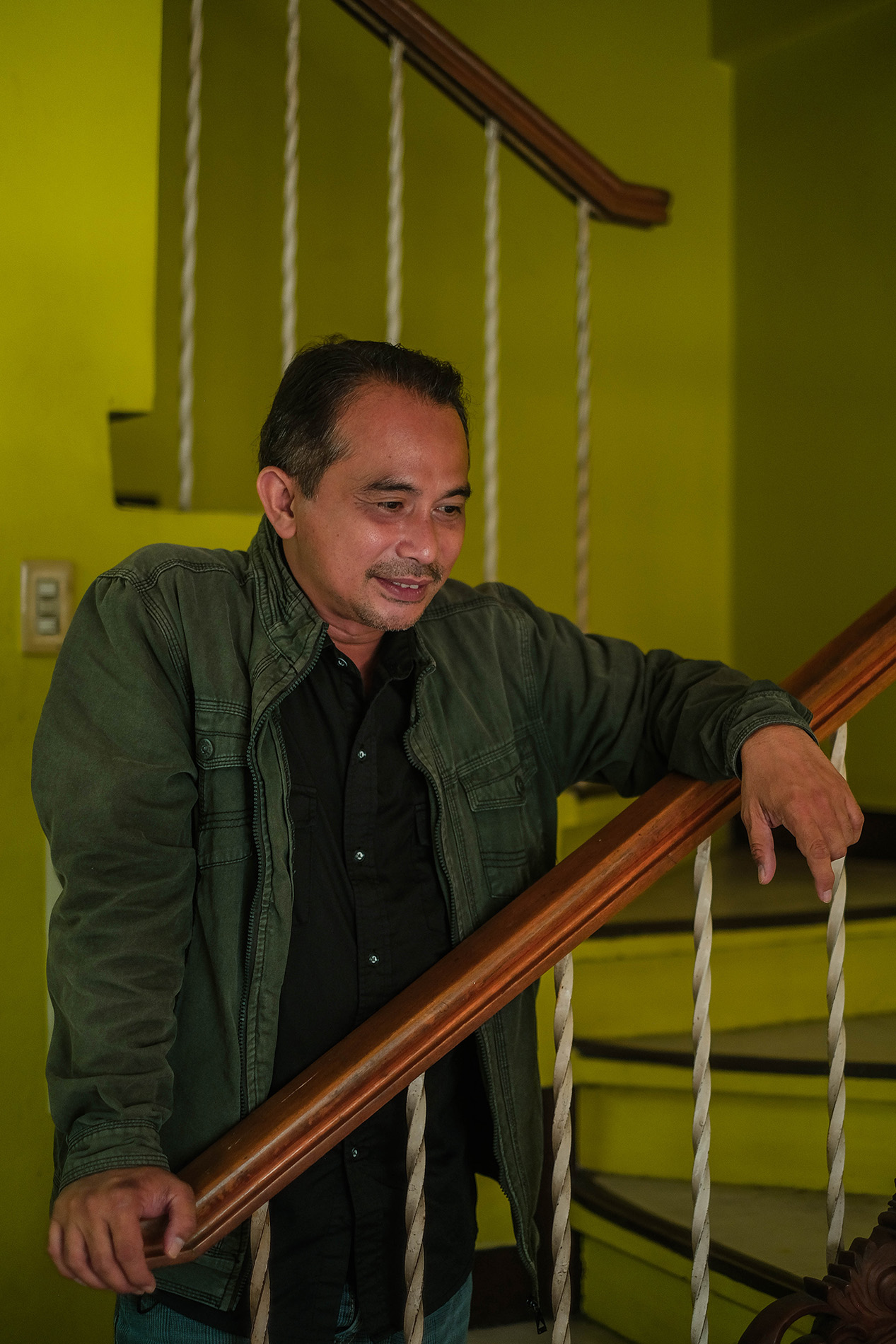
While nothing is set in stone yet, the father of four is confident that his children are bound to carve meaningful paths on their own. Asked if his daughters—whose ages range from 14 to 22—are just as ardent as he is with social causes, he lets out a massive smile, simultaneously resting his wrists on the table in front of him and leaning in to answer.
“They are very much into gender issues. They are sensitive about women’s rights. I think it’s a generational thing. At the same time, they’re free to form their own opinions and are even encouraged to speak their minds at home.”
“They’re also anti-capitalist,” Luke continues after a short pause. “They don’t want to admit that they’re socialists just because they feel conscious that they haven’t read enough Marx or Lenin. They don’t want to be posers.”
This information isn’t surprising at all. Luke, whose literary diet consists of the autobiographies of Che Guevara and Fidel Castro, to name a few, is a well-read labor organizer who holds a degree in communication arts. Meanwhile, Aimee, his wife, who’s also an Atenean, is an articulate communications technology management graduate who works as a creative at one of the country’s leading advertising agencies. “All of my daughters are strong women. I don’t even need to intervene on anything, anymore. No one can mess with them,” he ends sternly.
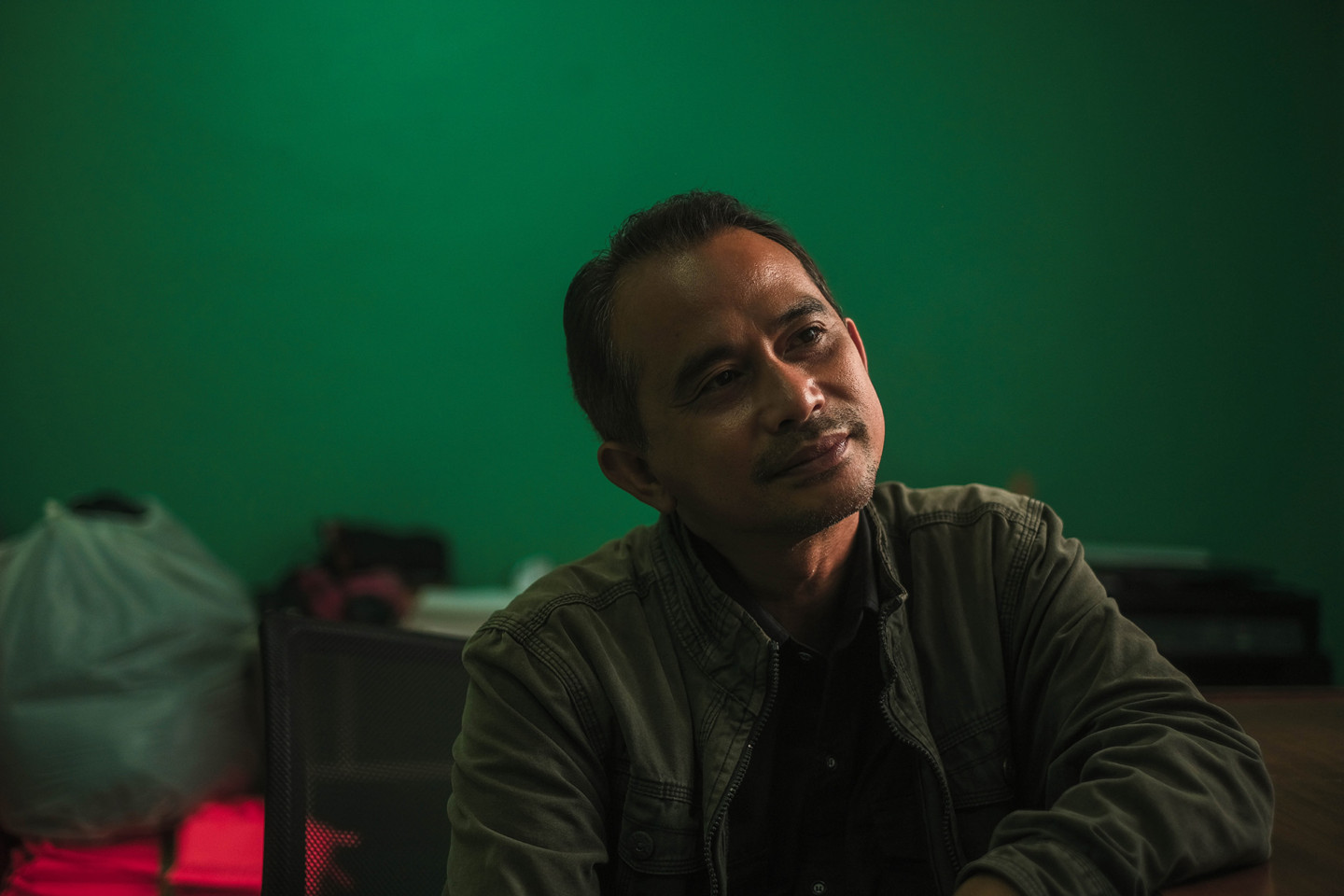
Conviction in Storytelling
The date is April 16, 2022. On the way to a political gathering in Bulacan, Luke informs Alex, one of the campaign organizers, that he’s going to catch up on sleep. “Iidlip lang muna ako ha. Medyo kulang lang sa tulog (I’m going to nap for a bit. I haven’t had enough sleep),” he whispers audibly while crossing his arms and stretching his legs in the van’s first row. For the entirety of the trip, he rests his head on the vehicle’s glass window, cloaked in his signature jacket and unbothered by the roads’ unevenness.
At the assembly area, a crowd of eager spectators awaits him and Walden, among others. Whether it’s to express support for whom they think merits their votes or it’s the novelty of collecting campaign stickers is anyone’s guess.
Nonetheless, Luke engages with the crowd like a veteran during his turn to talk. “Pakinggan niyo ‘to! Pakinggan niyo ‘to! (Listen up! Listen up!)” he warns with conviction before detailing his punchline of a message, mid-speech. “Kaya kayo nagbabayad ng 12% VAT at excise tax kahit mataas na ang presyo ng mga bilihin kasi binawasan ng gobyerno ang buwis ng mga mayayaman at korporasyon.” (The reason you pay 12% VAT and excise tax despite the prices of goods already being high is because the government doesn’t tax the wealthy as fairly as they should.)
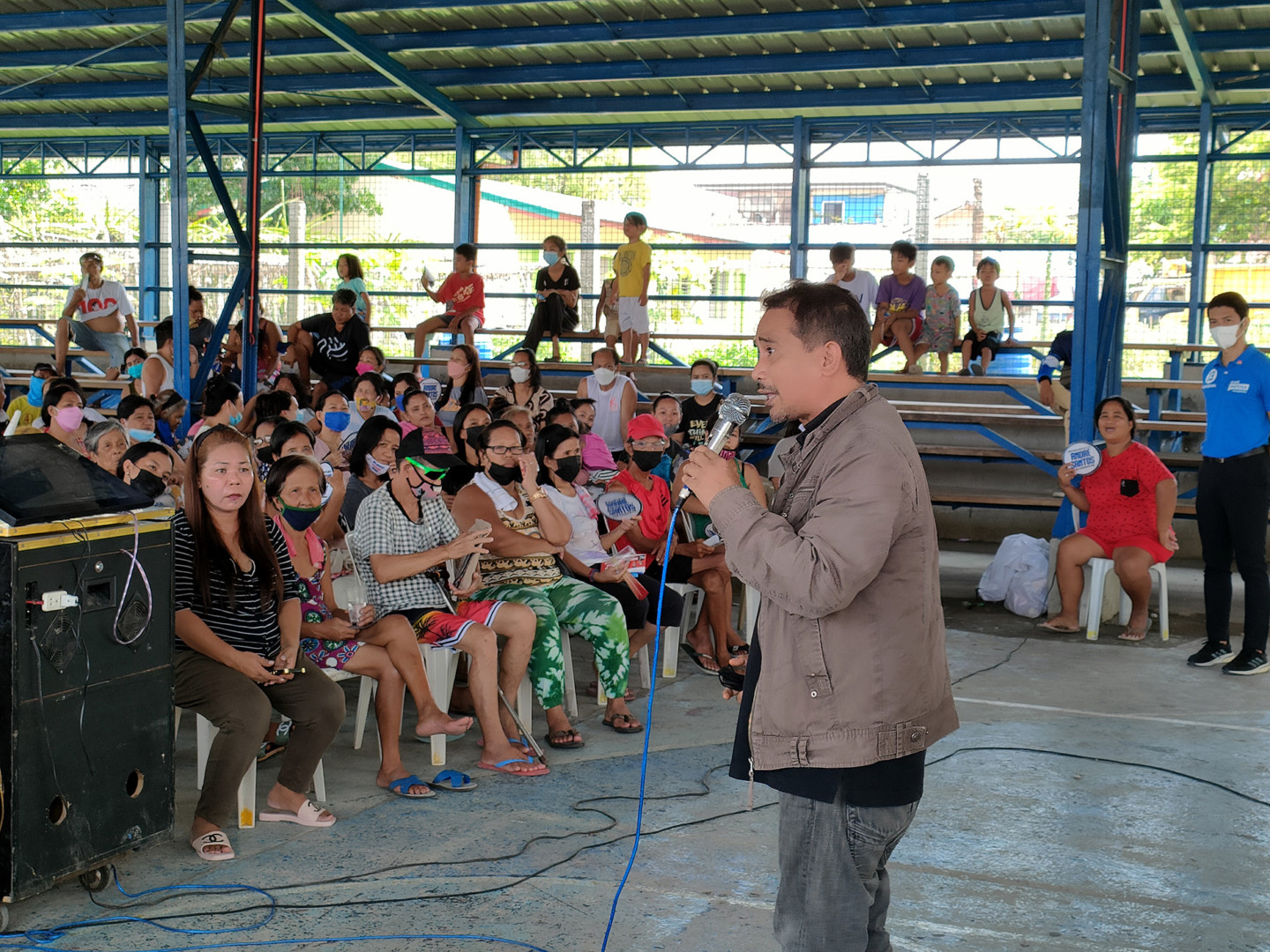
Photo courtesy of Laban ng Masa
The audience roars in agreement. “Alam niyo ba, na pag binuwisan lang ng 20% wealth tax ang top 500 richest Filipinos sa bansa—ang top 500 lang ha—ay makakalikom na ang gobyerno ng 1 trillion pesos? Hindi niyo na kailangan mangutang!” (Did you know that if the top 500 richest Filipinos pay a 20% wealth tax, the government can already secure 1 trillion pesos? You don’t have to borrow money to make ends meet anymore!)
At this point, Luke has mastered the art of storytelling. Like a preacher behind a pulpit, he knows exactly when to raise his voice, pause to let key points sink in, and make clever use of hand gestures as if they’re wands for entrancing magic tricks.
Back at the LnM headquarters, the senatorial candidate is more noticeably composed.
“I wouldn’t really call myself a good storyteller,” he shares impassively. “But I do use the narrative style in public speaking. I got that from observing Ninoy Aquino. So my style is usually to describe something by telling a story or by making my message alive through specific examples of people.” Asked to elaborate, he says specificity is crucial in telling a tale. “Generalities don’t inspire people. People are inspired when you talk about something that is real about their experiences.”
“For example, when I talk about contractualization, I don’t just talk about the idea of a contract ending. Sometimes, I tell the story of a contractual worker who, outside his already exhausting 12-hour shift, still has to pick up a delivery rider job because his salary is never enough.”
“When I talk about farmers not getting the support from the government, sometimes, I talk about the story of a farmer who has 11 hectares of land, and because he has no means to develop his 11 hectares, has had to abandon his property, only to end up working for another landowner who pays him only P200 a month. It’s absurd how government neglect causes poverty and impoverishes the farmer.”
“Using these images helps concretize these stories,” he punctuates with a broken voice. “And these stories have to be told because they are real.”
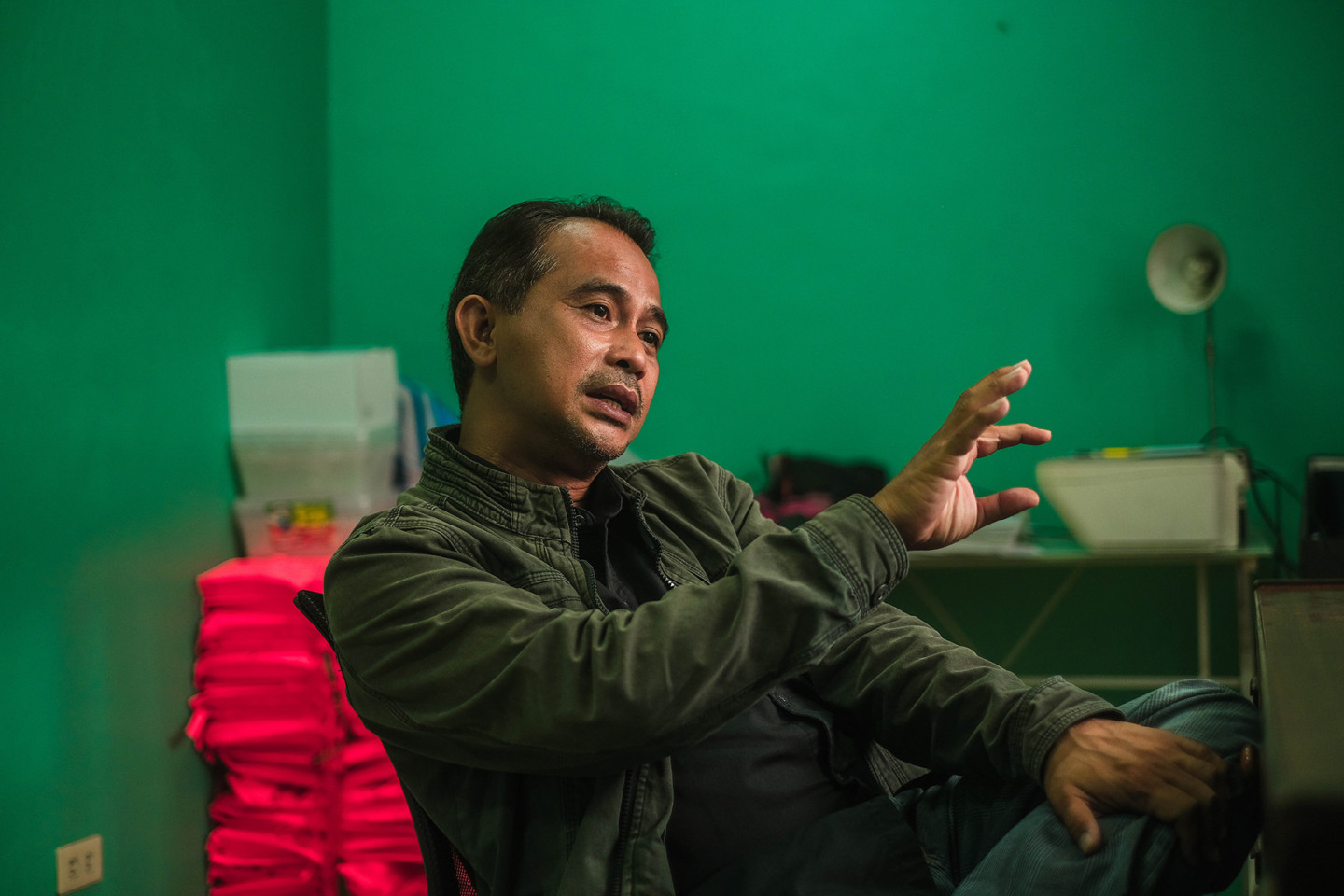
Activism in Art
Luke is every inch a performer, yet none of what he does is performative. Having championed, for a complete decade now, labor movement initiatives with Bukluran ng Manggagawang Pilipino (BMP), an organization dedicated to amplifying the voices of the exploited worker, the man of the hour isn’t alien to the diverseness of employment. Industrial, creative, or otherwise, all work contributes to the vastness of society, he tells us.
“What kind of art do you look forward to?” we probe. “Protest art,” he verbalizes, smiling.
“Yung mga expressions of protest and radicalization. Artists who get involved with what’s happening in larger society appeal to me. Because it’s different when you write about some things than when you try to express these same things through art. It affects people on different levels, both through the conscious and the unconscious.”
“Protest art captures how it is to battle for your freedom. That’s what I look forward to,” he adds.
No thanks to the uncomely sightings that come with fighting against inhumane labor practices, Luke says his resolve to turn to the arts for comfort and purpose is even more irredeemably necessary. “I think that the arts is liberating. As human beings, we’re designed to express ourselves eh, and art allows us to do just that. Art lets us be free people.”
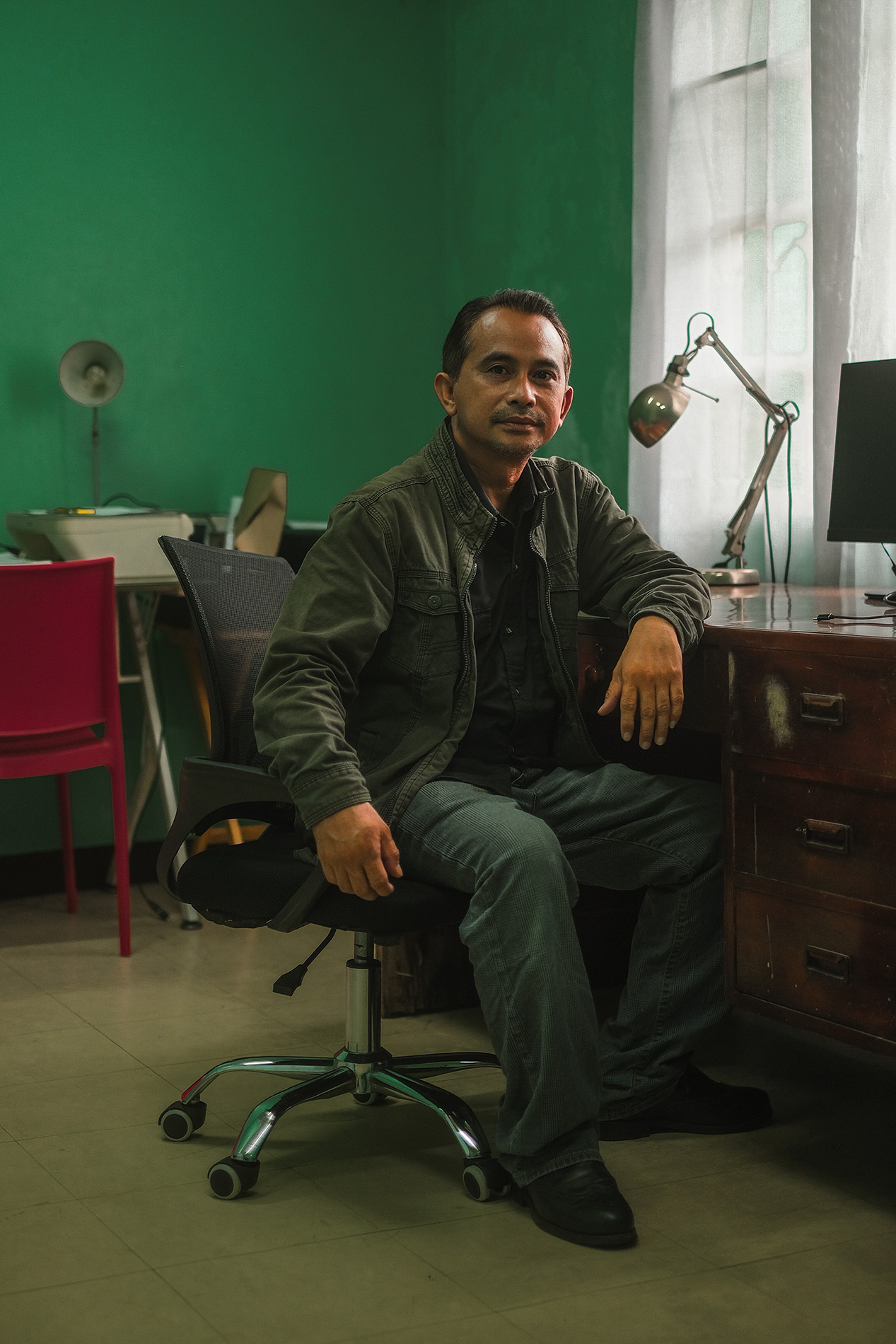
“When you abandon the arts, you become a machine. You become part of capitalist machinery for production. That’s why, many times, when you’re a worker, you’re forced to put aside your artistic inclinations.”
Be that as it may, the human rights activist reminds us how art is never mindless. And the support for artists and the narratives their art is about is almost always political. “What’s interesting about art is its ability to conceptualize what words can’t,” he theorizes before expounding how the art we patronize impacts the world around us.
What’s more, he reminds us how the middle class’ “peculiar role” in a capitalistic world is the capacity to afford and pick with discernment the institutions we support. “Because we aren’t rich in the same way we aren’t poor, we are in the perfect position to choose sides,” he starts.
“We can choose the side of those who are on top or those who are at the bottom, and we’re educated enough to be armed with concepts that will explain our choices.”
Capping off his remarks on the subject, Luke spells out how tapping into creative outlets helps us affirm our humanity. “You can only ever feel like a complete human being if you have the freedom to pursue artistic things.” Arguably why, among graver reasons, Luke fights for the causes he holds a torch for—to let more people afford what it means to be “complete.”
Reframing Power
Both figuratively and literally, the creative space is teeming with talent. Every day, writers, designers, musicians, and content creators churn out material that consistently shapes cultures and warrants discussions. Still, it bears mentioning that exploitation among creatives exists too.
From freelancers to employed professionals, the everyday normalities of delayed agency payments, underpaid workers, and unfair contracts abound. Quizzed on what he deems fit to better protect creatives, Luke says he’s keen to explore the establishment of a guild.
“Firstly, it’s important to give self-employed creatives the venue to widen their freelance activities and protect their expressions. Secondly, we can look at building a guild-like or industrial union-type na organization that assists freelancers with contracts and legal aid when necessary.”
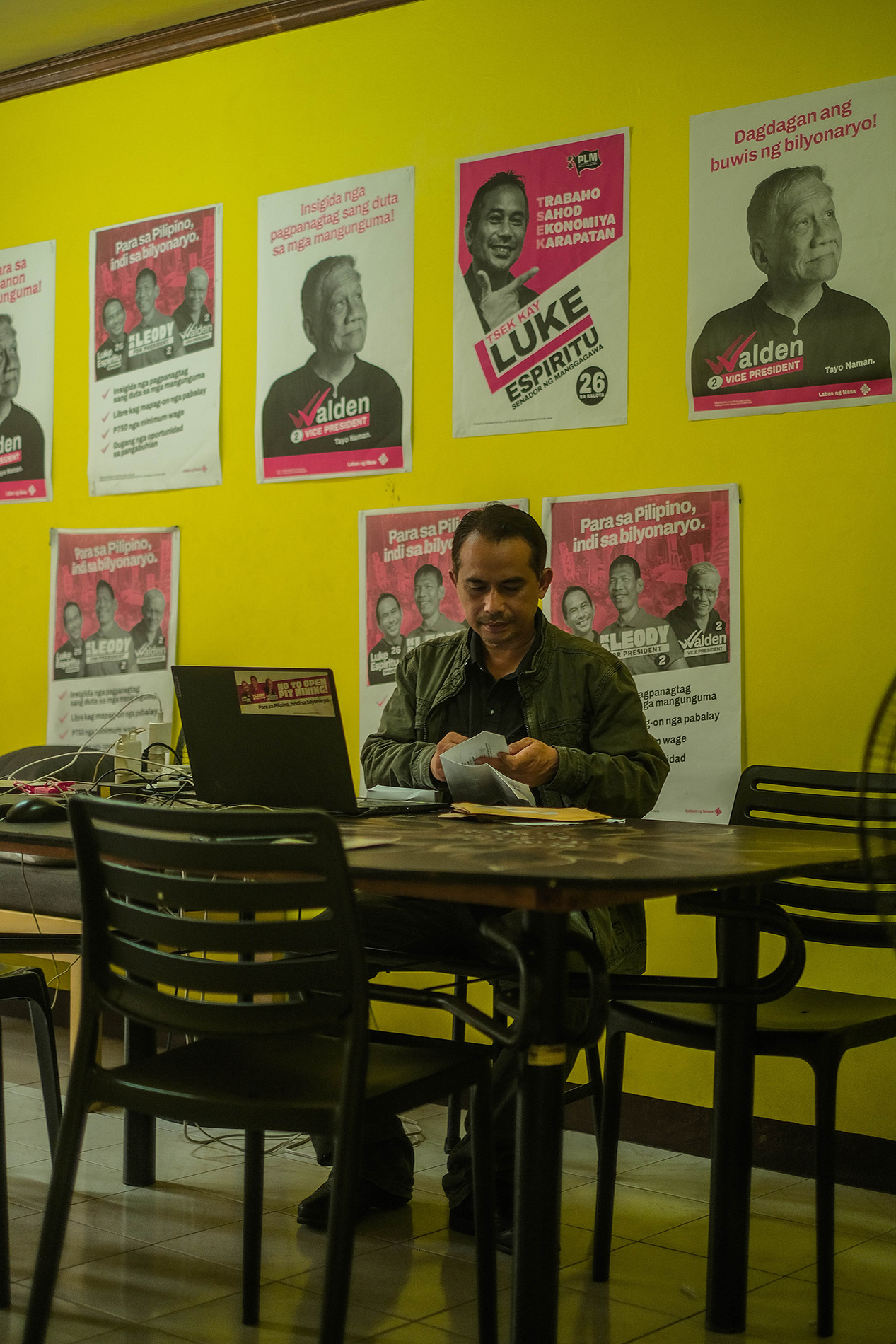
“Parang meron kang manager pero hindi tao ang manager mo, organization siya. Industry players can help determine rates and remuneration para hindi lang isa-isa ang pag-approach sa creatives pero collectively.” (It’s like you have a manager, but this manager isn’t one person per se but an entire organization. This way, prospects can approach you with more caution as you have a governing body to turn to.)
Luke admits that this is all off the top of his head. “It needs more conceptualization, obviously, but it can be done through legislation.”
Speaking with fiery eyes and open hands, he admits that he’s excited for how artists in the country are generally moving forward. “It’s nice to see how the creative scene is starting to be more progressive. There are more artists now who are vocal about social issues and pressing concerns, and it’s beautiful to see creatives lobby their causes through art.”
“Everyone has a story they want people to remember, especially leaders who run for office. What’s yours?” we ask, signaling the end of the interview.
“I think it’s important for people to remember—creative ka man or factory worker—that it is the working class that holds the power. Without workers, corporations and businesses aren’t going anywhere. Companies rely on them for profit. I want people to understand that workers don’t need a messiah or a savior. They are, in themselves, powerful and able. Ang manggagawa ang tunay na bayani.” (The real heroes are the working class.)
SUPPORT PURVEYR
If you like this story and would love to read more like it, we hope you can support us for as low as ₱50. This will help us continue what we do and feature more Filipinos who create. You can subscribe to the fund or send us a tip.

